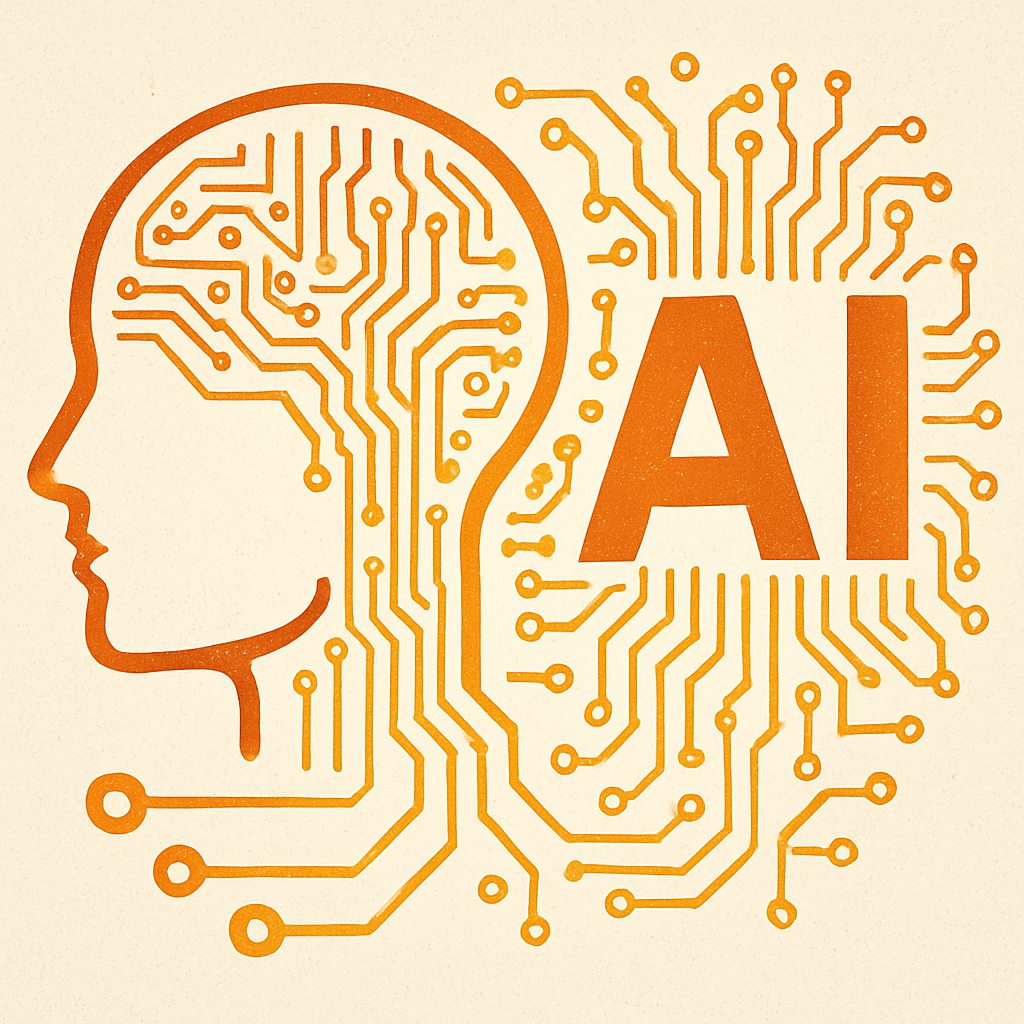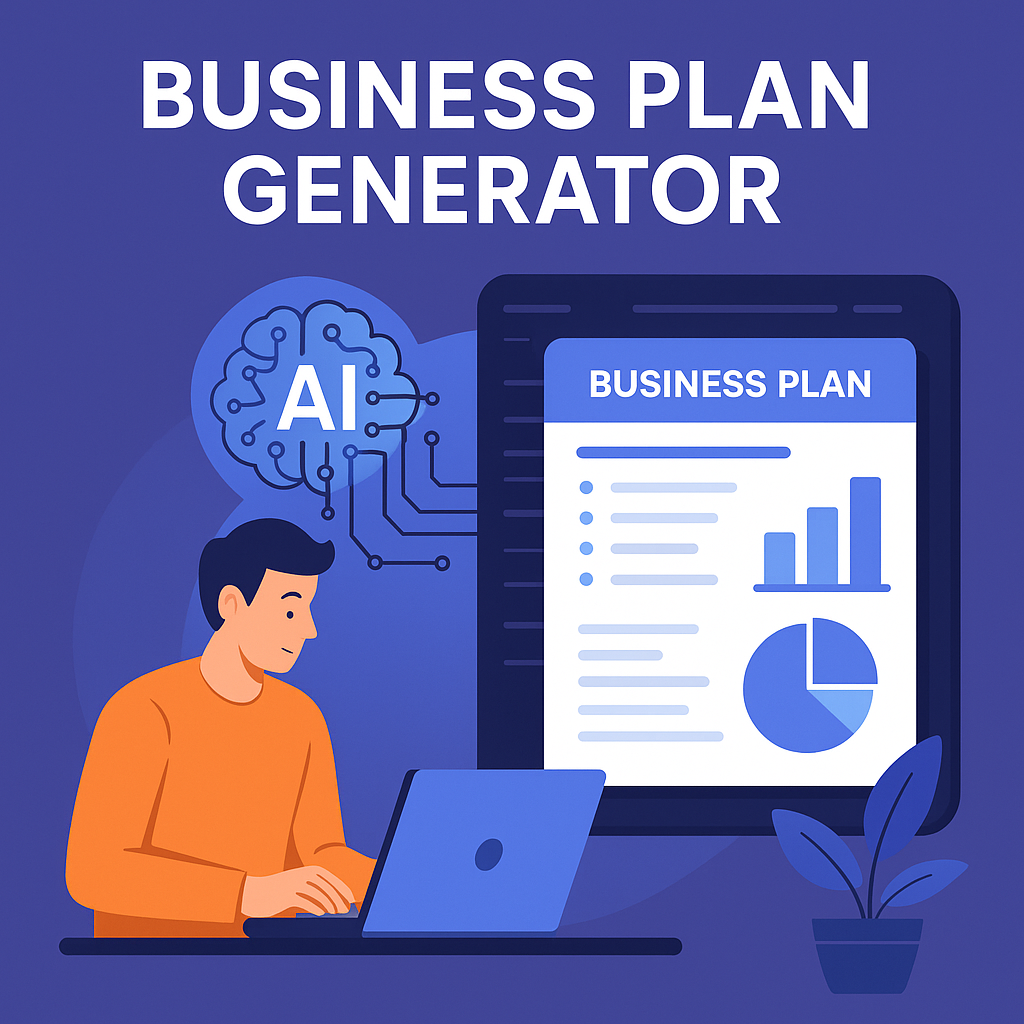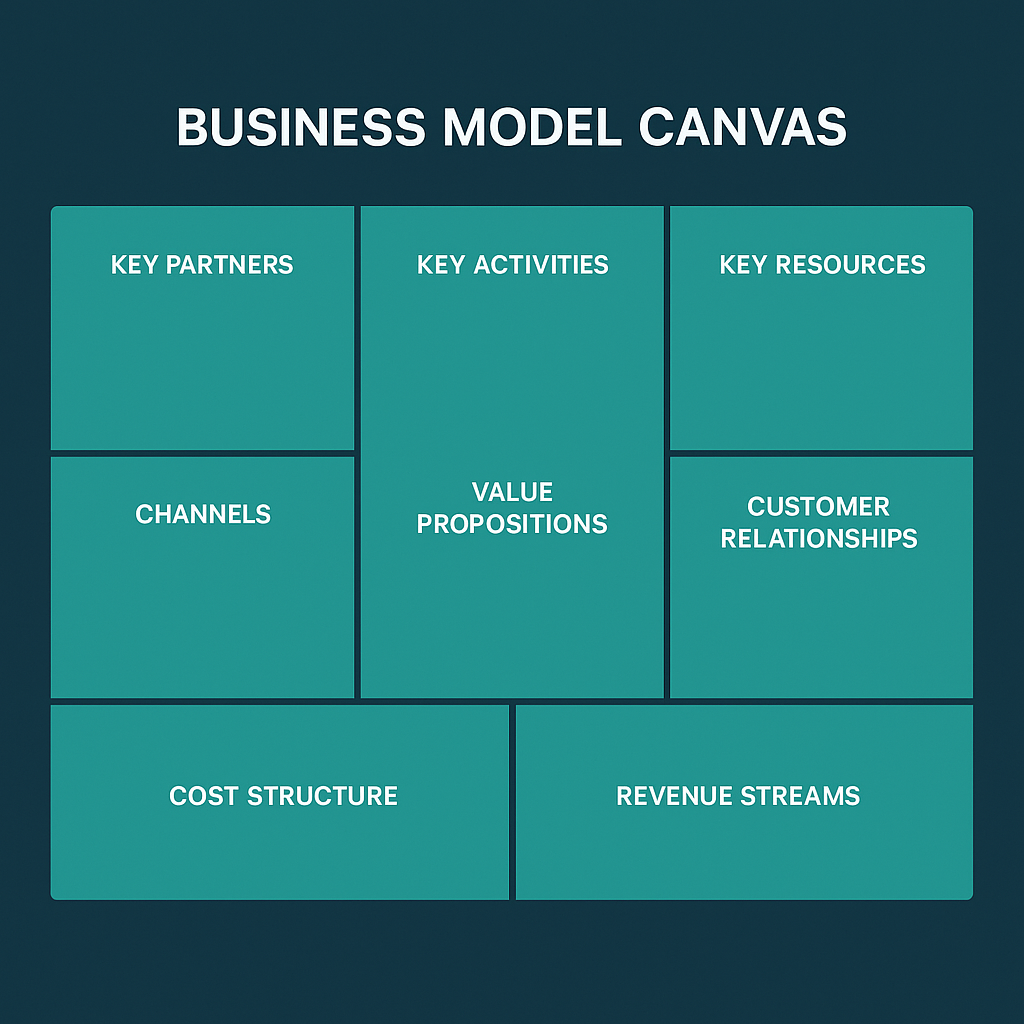Exploring the Future of AI Tools
Artificial intelligence tools like ChatGPT are reshaping our world. They offer new ways to interact with technology. These tools are not just for tech experts anymore.
AI tools are becoming more accessible. They are available to anyone with an internet connection. This democratization of AI is changing industries.
From healthcare to education, AI tools are making a difference. They automate tasks and enhance productivity. Businesses are using them to improve customer service.
The rise of AI chatbots is particularly noteworthy. They provide 24/7 support and improve user experiences. ChatGPT is a leading example of this trend.
But it's not just about convenience. AI tools are also driving innovation. They are helping researchers and developers push boundaries.
However, with great power comes responsibility. Ethical considerations are crucial in AI development. We must ensure these tools are used responsibly.
The future of AI tools is bright. As technology advances, so will their capabilities. We are just beginning to explore their potential.
What Are Artificial Intelligence Tools Like ChatGPT?
Artificial intelligence tools like ChatGPT are software applications. They are designed to simulate human-like conversation through text. These tools can understand and generate language fluently.
ChatGPT, developed by OpenAI, exemplifies this capability. It harnesses machine learning and neural networks. These technologies enable it to interact seamlessly with users.
Such tools are part of a broader category known as chatbots. Chatbots have evolved from rule-based systems to sophisticated AI-driven models. This evolution has expanded their functionality and versatility.
AI tools like ChatGPT are used in diverse fields. They automate customer service, streamline operations, and enhance user experiences. Their applications continue to grow with technological advancements.
Key features typically include:
- Natural language processing
- Machine learning capabilities
- Contextual understanding
- Ability to generate human-like responses
AI tools are increasingly integrated into daily life. They assist with everything from scheduling appointments to answering queries. Their constant learning means they become more adept over time.
However, not all AI tools are created equal. The effectiveness of a tool depends on its design and underlying technology. Evaluating these factors is crucial when choosing the right tool.
The impact of AI tools like ChatGPT is significant. They are reshaping how we interact with technology. As these tools evolve, their potential applications will expand, touching more aspects of human life.
The Evolution of AI Chatbots: From Rule-Based to Generative Models
The journey of AI chatbots began with rule-based systems. These early models followed a simple if-then logic. They could perform specific tasks but lacked sophistication.
Initially, rule-based chatbots were limited in scope. They could respond only to predefined inputs. This constraint made interactions rigid and less dynamic.
Advances in AI technology led to the development of generative models. These models transformed chatbots' capabilities drastically. They can generate responses rather than selecting from fixed templates.
Generative models use deep learning to understand context. This allows them to engage in more natural conversations. ChatGPT is a prime example of this progress.
Modern chatbots are built using machine learning algorithms. They draw insights from vast datasets to improve over time. These tools also incorporate neural networks for complex processing.
Key differences between rule-based and generative chatbots include:
- Flexibility in responses
- Ability to learn from interactions
- Enhanced contextual understanding
Generative models have expanded the utility of chatbots. They are now used across sectors such as healthcare, education, and customer service. This shift has greatly enhanced user experience and satisfaction.
The future holds even more promise for AI chatbots. With ongoing research, these tools will become even more intuitive. They are set to provide increasingly human-like interactions.
Key Features of an AI Tool Like ChatGPT
ChatGPT and similar AI tools are rich in features. They leverage advanced technologies for diverse applications. These tools have transformed how we interact with machines.
One major feature is natural language processing (NLP). NLP enables the understanding and generation of human-like text. It helps AI tools engage in meaningful conversations.
Machine learning is another core component. These AI tools learn from vast amounts of data. With time, they improve their responses and accuracy.
Contextual awareness is a standout feature. AI tools grasp the nuances of conversations. They adapt their outputs based on prior exchanges.
A key advantage is scalability. AI tools can handle numerous interactions simultaneously. This makes them ideal for high-demand environments like customer service.
Personalization is increasingly prominent. Chatbots tailor interactions to user preferences. They deliver more relevant and engaging experiences.
Essential features of AI tools like ChatGPT include:
- Natural language processing
- Machine learning capabilities
- Contextual and conversational awareness
- Scalability for large-scale deployment
- Personalization of user interactions
These features empower AI tools to be versatile and efficient. They enhance user experience by providing smarter, more engaging interfaces. The result is a seamless interaction between humans and machines.
by Elena Mozhvilo (https://unsplash.com/@miracleday)
Top Free AI Tools Like ChatGPT in 2025
The year 2025 marks a significant milestone for AI tools. New platforms emerge, offering remarkable capabilities. Free AI tools continue to grow in popularity, making advanced technology accessible to all.
Innovative tools like ChatGPT remain at the forefront. They constantly evolve to meet diverse user needs. New competitors bring fresh perspectives to the AI landscape.
These tools are reshaping industries worldwide. From healthcare to creative sectors, their impact is visible. They are enhancing how businesses operate and interact with customers.
A broad variety of AI chatbots cater to different preferences. While some focus on creativity, others emphasize efficiency. The goal is to offer personalized, intuitive experiences.
Choosing the right tool involves considering specific features. Many platforms offer unique advantages. Comparing them helps users find the best fit for their requirements.
Popular free AI chatbots available in 2025 include:
- Google Gemini
- Microsoft Copilot
- Claude
- Perplexity AI
- Meta AI
Choosing the perfect AI tool can be challenging. Each platform has its strengths and weaknesses. Understanding these can simplify the selection process.
Some AI chatbots are tailored for specific industries. Others are more general-purpose in nature. The key is identifying what works best for specific needs.
by BoliviaInteligente (https://unsplash.com/@boliviainteligente)
Google Gemini
Google Gemini is a powerful AI platform. Known for its innovative features, it caters to a diverse audience. Its versatility makes it a preferred choice for many.
The tool excels in natural language processing. This allows for smooth and engaging conversations. Users benefit from its advanced, user-friendly interface.
Key features of Google Gemini include:
- High-level natural language processing
- Versatility and adaptability
- User-friendly interface
Gemini's adaptability stands out. It easily integrates into various applications. This flexibility is crucial for meeting evolving user needs.
Ease of use is another highlight. Its simple design ensures it appeals to both experts and novices. This balance contributes to its growing popularity.
by BoliviaInteligente (https://unsplash.com/@boliviainteligente)
Microsoft Copilot
Microsoft Copilot leads with innovation. It's designed to enhance productivity and creativity. Businesses and individuals appreciate its interactive features.
The tool offers seamless integration with Microsoft's ecosystem. This convenience ensures efficient workflow management. Users find this integration highly beneficial.
Microsoft Copilot's standout features are:
- Seamless integration with Microsoft services
- Enhanced productivity tools
- User-friendly design
Productivity tools are a central focus. Copilot boosts efficiency through smart task management. This is vital for achieving optimal outcomes.
The user-friendly design attracts a diverse audience. Both corporate users and individuals enjoy its benefits. Copilot continually adapts to user demands.
by Patrick Konior (https://unsplash.com/@patrickkonior)
Claude
Claude is an emerging AI tool. It focuses on personalization and user engagement. Users value its tailored approach and intuitive features.
Its strength is deep learning capabilities. Claude quickly adapts, offering smart interactions. This learning ability makes it a competitive tool.
Key features of Claude include:
- Personalization and customization
- Advanced deep learning models
- Intuitive user interaction
Personalization is a core feature. Claude adjusts to individual user needs. This tailored approach enhances user satisfaction.
Engagement is prioritized in its design. Users experience seamless communication. Claude's intuitive response system is highly praised.
by Youngsik Ahn (https://unsplash.com/@ahnature)
Perplexity AI
Perplexity AI emphasizes creative potential. It's ideal for writers, artists, and developers. Its creativity-driven features set it apart from other tools.
This AI is designed for generating unique content. Users can explore endless possibilities. Its capabilities extend to various creative domains.
Perplexity AI's core features are:
- Creativity-focused design
- Content generation capabilities
- Versatile applications
Versatility is a key strength. It caters to different creative needs. This broad applicability makes it versatile.
The emphasis on creativity appeals to many users. Content creators benefit from its unique offerings. Perplexity AI consistently delivers inventive solutions.
by Alex Conradt (https://unsplash.com/@alexconradt)
Meta AI
Meta AI is renowned for its social media integration. Its design maximizes user engagement. It focuses on enhancing digital communication.
Integration with Meta platforms is seamless. Users enjoy improved social interaction. This makes it perfect for social media enthusiasts.
Key features of Meta AI include:
- Integration with Meta platforms
- Enhanced digital communication
- User-centric design
Social media capabilities are its hallmark. Meta AI improves online networking. This focus attracts a large user base.
User-centric design maximizes engagement. Ease of use ensures broad appeal. It effectively enhances the user experience.
by Annie Spratt (https://unsplash.com/@anniespratt)
Other Notable Free AI Chatbots
Besides the major players, several chatbots shine. They offer unique features and experiences. Users appreciate their distinct advantages.
These tools often cater to niche markets. They focus on specific user requirements. This specialization boosts their appeal.
Notable free AI chatbots include:
- Inferkit
- Replika
- Jasper
- Rytr
Each offers unique strengths. They cater to diverse user preferences. This diversity enriches the AI chatbot landscape.
Their specialized focus is a key asset. They address specific needs and interests. Users value this targeted approach.
by Jonathan Kemper (https://unsplash.com/@jupp)
Comparing the Best Free AI Chatbot Platforms
Evaluating AI chatbot platforms requires a careful approach. Each offers unique features that cater to various needs. Understanding these nuances is key to making informed choices.
The foremost consideration is user experience. Platforms should facilitate intuitive interactions. User-friendly interfaces often lead to higher satisfaction.
Performance is another crucial aspect. Chatbots must handle tasks efficiently. Users seek tools that process information quickly and accurately.
Customizability is highly valued. Some platforms offer extensive personalization options. Users enjoy tailoring chatbots to their specific requirements.
Integration capabilities are essential too. A platform should seamlessly fit into existing systems. This ensures smooth operations without unnecessary disruptions.
Key factors for comparing chatbot platforms include:
- User experience
- Performance and speed
- Customizability and personalization
Integration with other services is vital. Many users prioritize platforms that support diverse applications. This flexibility enhances the overall experience.
by Sigmund (https://unsplash.com/@sigmund)
Community support is important as well. Robust forums and resources aid learning and troubleshooting. This can influence a platform’s adoption rate.
Pricing models vary among platforms. Some offer premium features in free versions. Users must evaluate cost against benefits offered.
Considering these factors helps identify the best platforms. Each user's needs can be different, thus customizing solutions is crucial. Flexibility and adaptability are significant in choosing the right AI tool.
Additional comparison factors include:
- Pricing models
- Community and support resources
Selecting the best free AI chatbot can enhance operations. It allows businesses to optimize processes effectively. By evaluating these aspects, users make better decisions.
by Rohit Choudhari (https://unsplash.com/@iamrohitchoudhari)
Use Cases: How Artificial Intelligence Tools Like ChatGPT Are Transforming Industries
AI tools like ChatGPT are revolutionizing sectors worldwide. The changes span multiple industries, each benefiting uniquely from AI advancements. Key transformations are notably visible in healthcare, education, business, and creative fields.
AI technologies improve efficiency and accuracy in various sectors. They automate processes, allowing professionals to focus on higher-value tasks. This leads to enhanced productivity across diverse fields.
Additionally, AI tools facilitate personalized experiences. They offer tailored interactions in business, enhancing customer satisfaction. Chatbots, for instance, provide real-time assistance, optimizing service delivery.
Several industries leverage AI for innovation. In healthcare, AI aids in diagnostics and patient care. Educational platforms use AI for adaptive learning experiences.
AI's role in data analysis is substantial. It allows industries to make data-driven decisions swiftly. The shift towards AI-driven insights is transforming traditional practices.
Some key industry applications include:
- Automation of routine tasks
- Personalized customer interactions
- Data-driven decision-making
The shift to AI technologies continues to accelerate. Companies investing in AI tools gain competitive advantages. They see improvements in operations and customer engagement.
by Eugen Str (https://unsplash.com/@eugen1980)
Healthcare
AI in healthcare is impactful. It enhances diagnostics, making them faster and more accurate. Doctors use AI to analyze complex medical data effectively.
Patient care benefits from AI-driven tools. They offer personalized treatment plans. Telehealth services powered by AI improve accessibility.
AI applications in healthcare include:
- Diagnostic assistance
- Personalized treatment recommendations
- Efficient telehealth services
AI helps streamline hospital operations too. It optimizes resource management. The result is improved patient outcomes and satisfaction.
by Fotos (https://unsplash.com/@fotospk)
Education
AI transforms education through personalized learning. It adapts to students' unique learning speeds. This customization fosters better understanding and retention.
Educational platforms leverage AI to provide tailored content. Students experience interactive learning. AI tools also offer real-time feedback, aiding in learning.
AI applications in education include:
- Personalized learning experiences
- Adaptive instructional content
- Real-time student feedback
Teachers use AI for administrative tasks. This allows them to focus more on teaching. AI-driven analytics help in evaluating student performance.
by Haseeb Modi (https://unsplash.com/@haseebm)
Business and Customer Service
Businesses use AI to enhance customer experiences. AI chatbots provide 24/7 support, resolving queries efficiently. This leads to improved customer satisfaction and loyalty.
AI tools aid in automating marketing strategies. They analyze consumer data for targeted campaigns. Businesses see better engagement and conversion rates.
Key AI applications in business include:
- 24/7 customer support
- Automated marketing strategies
- Data-driven consumer insights
Operational efficiencies are achieved through AI integrations. They optimize supply chain management. Cost reductions and improved processes follow.
by Chelaxy Designs (https://unsplash.com/@chelaxydp)
Creative Industries
In creative fields, AI stimulates innovation. Artists use AI for generating new art forms. Musicians explore AI-generated compositions.
AI enhances creative processes, offering novel possibilities. It supports content creation with automated tools. Writers and designers benefit from AI's capabilities.
Creative industry applications include:
- AI-generated art and music
- Automated content creation
- Innovative design solutions
AI tools collaborate with creators, amplifying creativity. They push the boundaries of traditional art forms. AI's role in creativity continues to grow.
by Yuriy Vertikov (https://unsplash.com/@noa69)
Benefits of Using AI Tools Like ChatGPT
AI tools like ChatGPT offer numerous advantages. They streamline processes, improving efficiency in various applications. Users can achieve tasks faster with AI assistance.
A key benefit is enhanced productivity. AI automates mundane tasks, freeing time for creative work. This leads to more innovative and effective outcomes.
AI tools also reduce costs. They minimize the need for extensive human intervention. Businesses can allocate resources more efficiently, optimizing operations.
Moreover, AI improves accuracy. It reduces errors in complex tasks, ensuring reliable outputs. For instance, AI-driven analytics provide precise insights, supporting critical decision-making.
AI facilitates personalization. It offers tailored experiences to users, enhancing engagement and satisfaction. This adaptability makes AI tools invaluable across industries.
Benefits include:
- Increased efficiency
- Improved accuracy
- Cost savings
- Personalized experiences
Embracing AI leads to competitive advantages. Organizations leveraging AI tools like ChatGPT gain a strategic edge. They are better positioned for future innovations.
by Hunter Haley (https://unsplash.com/@hnhmarketing)
Challenges and Limitations of AI Chatbots
AI chatbots, despite their many benefits, face several challenges. Understanding these limitations is crucial for effective use. They impact performance and user satisfaction.
One major challenge is understanding context. AI chatbots often struggle with nuanced conversation. This can lead to responses that lack relevance or insight.
AI chatbots also face challenges with complex language. They might misinterpret idioms or slang. This limitation can frustrate users seeking natural interaction.
Another issue is data dependency. AI requires vast datasets for training. Incomplete or biased data can skew results, leading to inaccurate outputs.
Privacy concerns are significant. AI chatbots handle sensitive information. Ensuring data protection and user privacy remains a critical challenge.
Limitations include:
- Context comprehension
- Handling complex language
- Data dependency
- Privacy concerns
Addressing these challenges requires ongoing research. Future advancements should focus on improving AI chatbot capabilities. This will ensure they meet user expectations.
by Denis Cherkashin (https://unsplash.com/@denic)
Ethical Considerations and Responsible AI Use
AI technologies, including ChatGPT, raise crucial ethical questions. Understanding these issues helps foster responsible use and trust. Developers must prioritize ethical principles in AI design.
Bias is a significant concern. AI can inherit biases from training data. This may result in unfair outcomes or discrimination. Ensuring fairness and equity requires continuous monitoring and adjustment.
Transparency is essential in AI deployment. Users need to understand how AI systems function. Clear communication builds trust and promotes informed use of AI tools.
Accountability in AI systems is vital. Developers should take responsibility for AI actions. Establishing guidelines for accountability can help manage AI impacts effectively.
Other ethical issues to consider include:
- Privacy protection
- Consent for data use
- Long-term societal implications
Addressing these considerations fosters public confidence. Implementing ethical guidelines is a shared responsibility. Developers, users, and policymakers must collaborate for responsible AI development.
by Claudio Schwarz (https://unsplash.com/@purzlbaum)
The Future of Artificial Intelligence Tools Like ChatGPT
The future of AI tools is bright and full of potential. Innovations will continue to shape industries, creating new opportunities. AI tools like ChatGPT will grow smarter and more efficient.
AI chatbots are likely to evolve into more human-like interfaces. They will interact more naturally with users, increasing engagement and utility. These developments will enhance user experiences across various sectors.
Future AI tools will also become more personalized. Advanced algorithms will analyze user preferences closely. This will allow for more tailored recommendations and interactions.
A key development will be the integration of emotional intelligence. Future AI systems might understand and respond to human emotions more effectively. This could revolutionize fields like mental health and customer service.
Scalability will remain a focus. AI tools will handle larger datasets more seamlessly. This capability will be critical in data-intensive fields like research and logistics.
Possible future advancements include:
- Improved natural language processing
- Greater adaptability to user needs
- Enhanced security measures
While the future holds promise, challenges persist. Ethical considerations and responsible development must guide the evolution of AI tools. Engaging in these discussions will ensure a positive trajectory for the technology.
by Giullia Siqueira (https://unsplash.com/@giulliasiqueira)
How to Choose the Best Free AI Chatbot for Your Needs
Choosing the right AI chatbot is crucial for maximizing effectiveness. Start by identifying your primary use case. Knowing what you need will narrow down your options.
Consider the chatbot's features and capabilities. Does it support natural language processing? Is it capable of handling tasks beyond basic queries? These are critical questions to ask.
Evaluate the ease of integration with existing systems. The best chatbot should integrate smoothly without requiring significant changes. This ensures that it will be an asset, not a hindrance.
Look into customization options. Does the AI tool allow for personalized configurations? Flexibility is important for tailoring the chatbot to fit your specific requirements.
Lastly, consider user feedback and reviews. Understanding how others perceive the chatbot can provide valuable insights. User experiences can highlight strengths and pinpoint potential weaknesses.
Key factors to consider include:
- Natural language abilities
- Ease of integration
- Customization features
- User feedback
Choosing wisely will enhance interaction quality and improve productivity.
by Franck (https://unsplash.com/@franckinjapan)
Getting Started: Tips for Using AI Tools Like ChatGPT Effectively
Effectively using AI tools starts with familiarization. Spend time exploring their interface and features. Hands-on interaction will build confidence in navigating these tools.
Define your objectives clearly before using AI. Understanding what you aim to achieve focuses your efforts. It helps in tailoring the AI's usage toward specific goals.
Ensure data quality by providing clear input. AI tools, like ChatGPT, are as good as the information they process. Precise and well-structured input leads to accurate and useful outputs.
Continuously refine your use of AI tools. Experiment with different approaches and settings. This way, you'll optimize their functionality over time.
Tips for effective use:
- Understand the tool's features
- Set clear objectives
- Provide high-quality inputs
- Refine and experiment regularly
Implementing these tips will maximize the benefits AI tools offer.
by Anton Savinov (https://unsplash.com/@tonchik)
Frequently Asked Questions About AI Tools Like ChatGPT
What is ChatGPT? ChatGPT, developed by OpenAI, is an AI chatbot known for human-like conversations. It utilizes advanced language models to generate responses.
How do AI tools work? AI tools analyze large datasets and recognize patterns. They use algorithms and machine learning to understand and process information.
Are there free AI tools like ChatGPT? Yes, several AI tools offer free versions. These versions provide basic functionalities suitable for casual users and small businesses.
Commonly asked questions include:
- What capabilities do AI chatbots have?
- How secure are these AI platforms?
- Can AI tools replace human roles?
Addressing these queries helps users make informed decisions. Understanding AI's scope and limitations fosters responsible usage, promoting effective integration into daily applications.
Conclusion: Embracing the Future of AI Tools
AI tools like ChatGPT stand at the forefront of technology evolution. They are reshaping industries and influencing daily life. As they progress, the potential benefits are limitless.
Embracing these tools can drive innovation and efficiency. It's crucial to stay informed and adapt to changes. This proactive approach can maximize their positive impact on society.
The journey of AI tools is just beginning, yet significant. Future advancements promise even more intuitive and personalized interactions. This will further embed AI into various aspects of human life.
As we move forward, it's essential to use AI responsibly. By considering ethical guidelines, we can ensure these tools serve humanity effectively. This balance between innovation and ethics is key to a harmonious future with AI.




